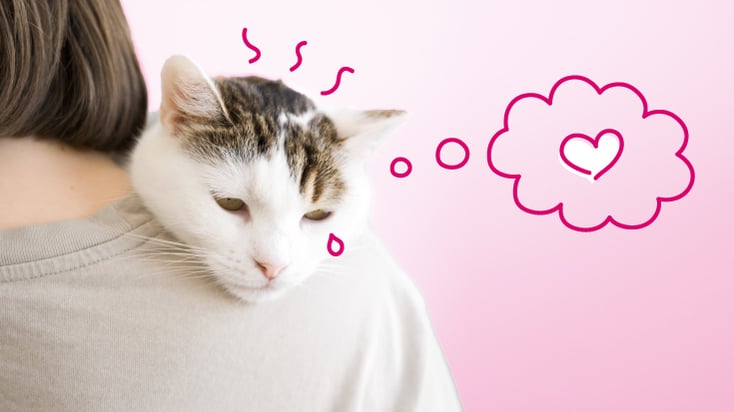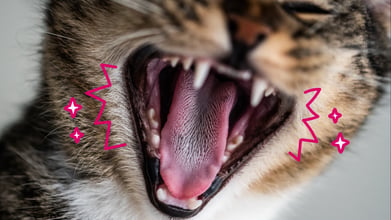Have you ever caught your cat giving you a curious glance when you're crying? Many of us wonder, can our whiskered companions really pick up on our moods? Let’s take a look at the stereotype of the aloof feline and explore just how intuitive cats might be with our emotions.
Can Cats Sense That You're Sad?
Yes, cats can sense when their human is sad. While they may not understand sadness as we do, cats can recognize the behavioral shifts that come with our mood changes. Have you ever had your feline buddy curl up beside you or offer a comforting purr when you're feeling under the weather? There's science behind it.
A study conducted in 2015 revealed that cats can distinguish and respond differently to their owner's emotional cues. For instance, when owners appeared content, their cats were more likely to exhibit friendly behaviors like purring or sitting on their lap. In contrast, an upset owner might find their cat more distant or hesitant.
How Cats Perceive Human Emotions
Our feline friends are more observant than we often give them credit for. Their ability to tune into our emotional state isn't just about intuition; it's a blend of sharp observation and deep connection. Cats use the following cues to gauge how their pet parent is feeling:
Facial expressions
Cats can pick up on a smirk or a scowl. According to a study from the University of Milan, cats can distinguish between different human facial expressions and may react differently based on what they "read" on our faces.
Voice and auditory cues
It's not just what we say but how we say it. Cats are sensitive to tonal changes in our voice, noticing when we're cheerful or when we're upset. Gentle tones might comfort them, but louder, sharp tones can make them dart for a hiding spot.
Behavior and disposition
If you're lounging around more than usual or pacing anxiously, your cat will likely notice. Cats are keen observers. For instance, if you're feeling blue and spending more time on the couch, don't be surprised to find your feline friend snuggling up beside you, offering their own version of comfort. They often adjust their behavior based on ours.
It's a two-way street of emotional understanding. While they might not "get" every nuance of human emotion, our whiskered companions are more in-sync with us than we may realize.
Historical Bond Between Cats and Humans
From ancient Egypt, when cats were revered, to the millions of cat videos that we love to watch on our social media feeds, our bond with cats has stood the test of time. They've been more than just our companions; they keep our homes rodent-free, and their calming presence can even provide specific health benefits.
Researchers in Vienna have studied the human-cat bond and concluded that our feline companions aren't just lounging around; they're keenly attuned to and deeply influenced by our interactions.
The Impact of a Strong Bond
A close bond with an owner changes how a cat responds. Instead of just reacting, cats often show behaviors that match our feelings. Notice how your cat might join you during your morning activities? Or stay close when you're focused on a task? This isn’t by accident. As cats bond more with their owners, they become better at picking up and adapting to our emotional states.
But always remember, while cats often mirror our emotions, if you notice any unusual behaviors in them, it could be more than just an emotional response. It might be worth scheduling a behavioral consultation with your veterinarian.
Conclusion
As most cat parents would agree, cats can sense when they are sad. When your cat comes over to you during a rough day, it's their way of saying they're there for you. So, next time you're down, and your cat keeps you company, remember they're likely sensing your mood and responding in their own special way.
Frequently Asked Questions
How do cats react to human emotions?
Cats can pick up on human emotions through behavioral and vocal cues, often responding by getting closer to offer comfort during sadness or acting distant when sensing anger or tension.
Do cats understand sadness like humans do?
Cats may not perceive sadness exactly as humans do, but they can recognize the behavioral shifts accompanying our mood changes.
Do cats understand when you cry?
While cats may not fully comprehend the emotional significance of human tears, they can detect and often respond to changes in their owner's behavior or vocal expressions during crying.
Do cats worry about their owners?
Cats may not "worry" in the human sense of the word, but they can become attuned to changes in their owner's behavior or routine.








